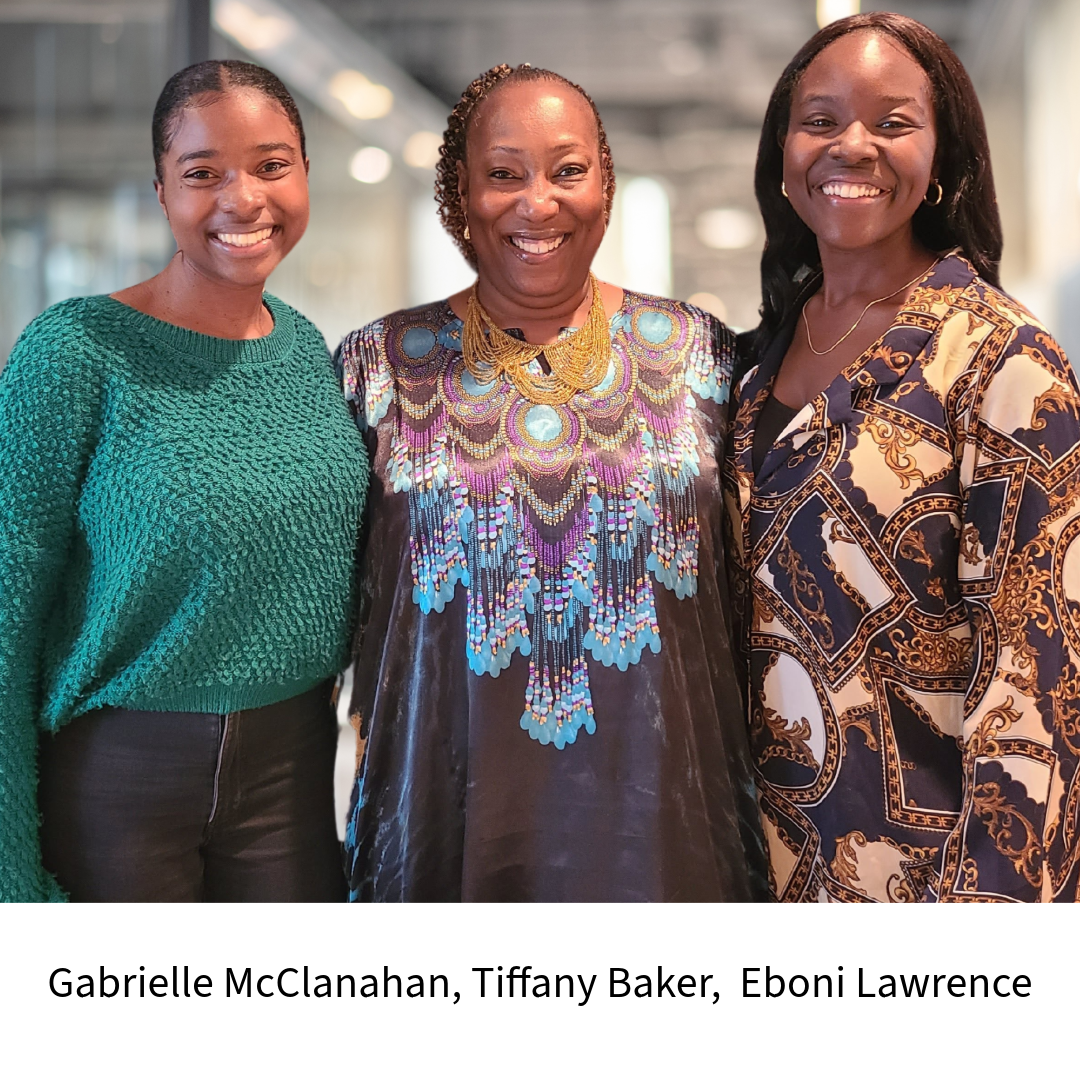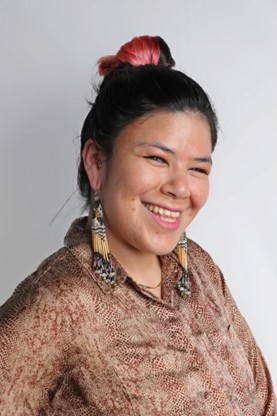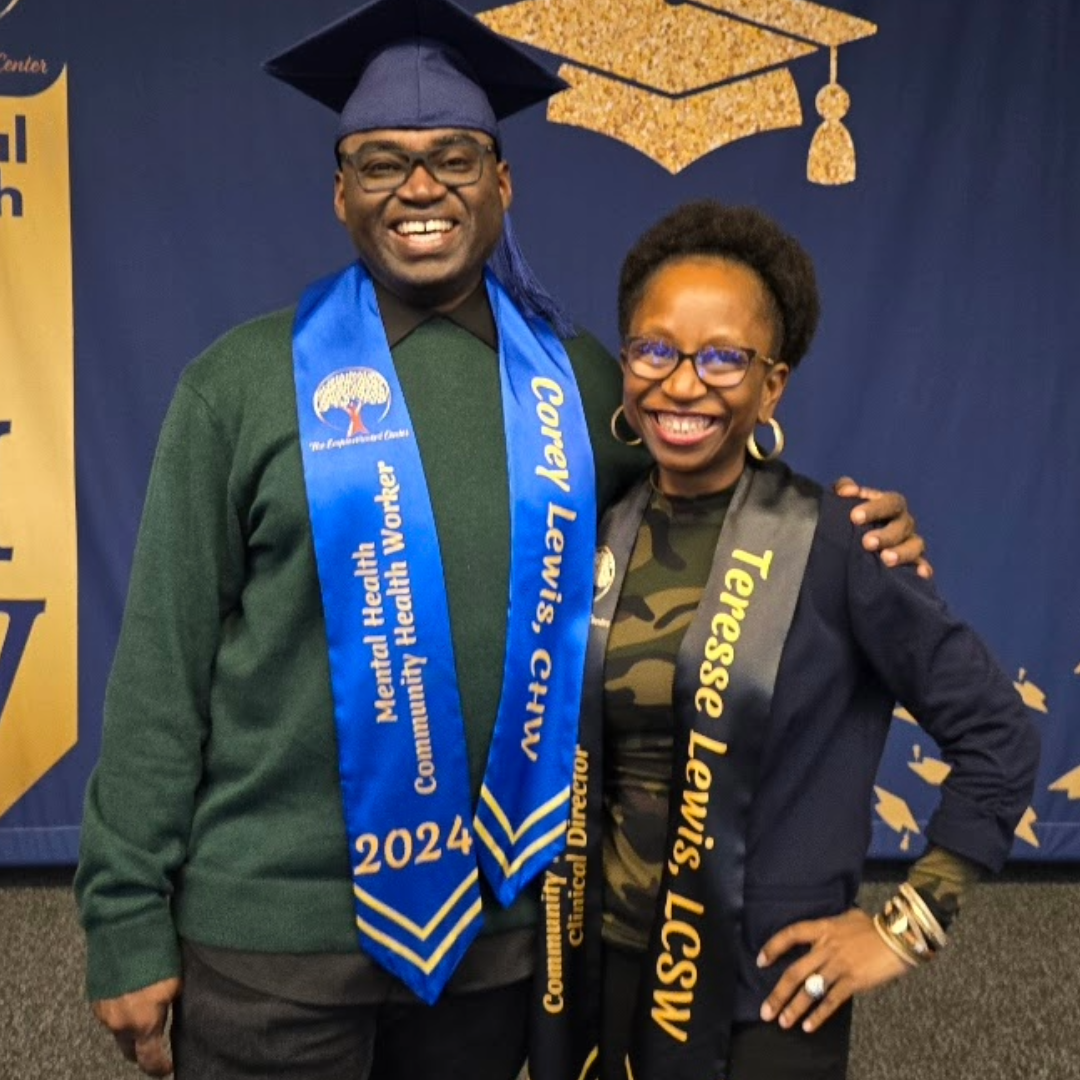In the Spotlight Project Voice
The Empowerment Center
Temecula, CA – The Empowerment Center (TEC), a community-based organization in Temecula, CA, is responding to the critical shortage of mental health professionals in the Inland Empire, which is affecting service delivery and access to disadvantaged populations, youth, and families. TEC is tackling this issue through a holistic approach to community health worker training, Building a Resilient Workforce Training Program. This program is funded by the California Workforce Development Board, California Division of Apprenticeship Standards, and the City of Temecula. Launched in April 2024, the 12-week course is designed to train frontline mental health professionals in competencies of trauma-informed care, health and social service navigation, mental health first aid, career readiness training, and mentorship. The program’s goal is to fill this critical gap in care while providing participants with a pathway to stable employment. TEC’s Building a Resilient Workforce Training Program aligns with the goals of the High Road Training Partnership Initiative by focusing on job quality, equity, career advancement, and regional needs. Program participants receive wrap-around support, including mentorship, to ensure access to employment opportunities in mental health services with benefits for long-term careers. By prioritizing the recruitment of disadvantaged groups—including youth, justice-involved populations, and racial minorities, TEC fosters greater workforce diversity and addresses regional disparities. Additionally, the program’s hybrid training model has increased student participation while reducing transportation barriers. To learn more about the Resilient Workforce Career Readiness Program and its statewide supportive services approach for registered apprentices visit https://www.theempowermentcenterintl.com/.

Gabrielle McClanahan
Mentor, TEC Youth Leadership Academy
Gabrielle McClanahan was born and raised in the Inland Empire and has been connected to The Empowerment Center (TEC) in all stages of her life. As a young child, her parents benefited from supportive services like mental health services, housing assistance, financial literacy coaching, and the Youth Leadership Academy. As a teenager, Gabrielle was an excellent student and felt the pressure to attend a university as a common path to gain access to a career. She felt that the financial responsibility was a barrier and turned to TEC for guidance. Gabrielle’s perspective changed after TEC provided educational coaching and the resources to navigate the education system and financial aid. She described her experience as better than she could have imagined because, as a single young woman living in a high-cost area, she was able to access high-quality education without financial debt. She said, “TEC’s coaching and training helped me go to community college where I studied Sociology at Palomar College. I was able to apply what I was learning in my degree program while working with TEC’s programs which gave me an on-the-job training experience.”
Holding an associate’s degree in Sociology, Gabrielle continued her journey and enrolled in TEC’s Community Healthcare Worker (CHW) Building a Resilient Workforce Training Program while working full-time in a remote position. She described the program’s format as being conducive for working people having evening hours and asynchronous components. Gabrielle shared one of the most valuable pieces of knowledge was learning clinical language.
“I now have the language that can be applied within the domain for community and clinical settings.”
She went on to say how this knowledge is an asset at work and in her personal life. The coursework equipped her with tools to identify mental health concerns and skills to understand the scope and origins of an individual’s situation, including socioeconomic factors, child abuse, parental stress, and neglect. As she gained this knowledge, her confidence grew. Applying her knowledge in the workforce has earned her a promotion and the ability to give back to her community as a mentor at TEC’s Youth Leadership Academy.

Jasmin Duran
TEC Graduate
Jasmin Duran knew there was a healthier life outside of the reservation she called home. As a single pregnant mother with limited formal education, Jasmin described a life built around low-quality employment, including long commutes to work, minimal career development, and low wages that would make providing for her new baby a daily struggle. With this outlook, she connected with High Road Training Partnership grantee, The Empowerment Center and became a member of their shared housing network. Jasmin shared how beneficial TEC’s services were during this critical time in her life giving her a new perspective on her future: “[TEC] supported me through bonding with my newborn baby, provided mental health resources, and employment training that led me to my current role in disability law.”
“I turned pain into power. To all women, single mothers, and fellow Native Americans, you can make it. ”
As a new mother working in a full-time remote position for a disability attorney, she decided to enroll in TEC’s Building a Resilient Workforce Training Program. TEC’s training made a lasting impact on Jasmin that she will pass on to her family. “The training gives you language for things you knew you w ent through, whether it’s abuse, trauma, or something hurtful… and gives you the education and knowledge to understand this, so I’m not going to perpetuate it.” Jasmin uses her formal training every day in her work and sees a future of upward mobility, livable wages plus benefits, and growth in an industry she loves. Jasmin has grown into a happy, inspired woman who is confident about her family’s future because of her commitment to TEC’s community health worker training. “I turned pain into power,” said Jasmin. “To all women, single mothers, fellow Native Americans; you can make it. There is hope deep inside you. If I can overcome being a statistic, then you can too.”
ent through, whether it’s abuse, trauma, or something hurtful… and gives you the education and knowledge to understand this, so I’m not going to perpetuate it.” Jasmin uses her formal training every day in her work and sees a future of upward mobility, livable wages plus benefits, and growth in an industry she loves. Jasmin has grown into a happy, inspired woman who is confident about her family’s future because of her commitment to TEC’s community health worker training. “I turned pain into power,” said Jasmin. “To all women, single mothers, fellow Native Americans; you can make it. There is hope deep inside you. If I can overcome being a statistic, then you can too.”

Corey Lewis
Mentor, Community Health Worker
Corey Lewis grew up in Chicago and became a first-generation college graduate after relocating to Southern California.Over a 20-year period, Corey worked various entry-level jobs for Fortune 500 companies. In every position, he carried the weight of unreconciled family trauma and most recently was navigating the residual effects of the Covid-19 pandemic. It made him realize that he had another calling. In all of Corey’s previous jobs his “superpower” was his ability to connect with others. His colleagues encouraged him to pursue a degree in Sociology or become a Licensed Marriage and Family Therapist. To Corey, the thought of going back to school was financially overwhelming and not conducive to his work schedule.
That is until he connected with The Empowerment Center’s Building a Resilient Workforce Training Program. Corey thought, “I can choose to go get another degree, or I can have a [Community Health Worker] certification under my belt where I can make good money and still have the option to go back to school.” He took a chance on TEC’s training program and graduated from their first cohort. The 12-week program, offered outside of his work hours, allowed Corey to upskill his cultural competencies, receive mental health resources, and learn strategies to navigate educational systems to increase access to supportive services.
If we build humanity—if we build our workforce first—we will all be successful.”
Since completing TEC’s training, Corey serves as a mentor to other CHW’s in training and continues to develop as a professional while giving back to his community. Corey reflected on the experience saying: “Life sometimes comes and forces you up to do things that we didn’t think we were going to do because we needed to survive and make a living. Young people are struggling and having training like [TEC’s CHW] [they] can discover something about themselves that they would never discover going to a traditional college.”
Corey has since gone on to earn a promotion in the human resources division with his employer and believes his emotional intelligence, problem-solving skills, and effective communication strategies learned through TEC’s training contributed to his success. Corey said, “Everyone should take this training to overcome challenges we’re facing in this country. If we build humanity—if we build our workforce first—we will all be successful.”
